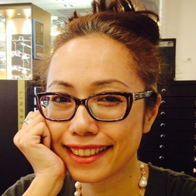MAY 12 — The small community of Afghan refugees residing in Kuala Lumpur is facing an internal crisis. In halting English, translators from the community tell volunteers who have come to donate sundries and meet them, that sometimes it is difficult to engage with someone whom they perceive could be from another tribe.
When it comes to Afghans, it is all about diplomacy and negotiation even in times of strife, and in strange countries. Despite the fact that the Hazaras, Tajikhs and Sadaks work together, tribal allegiances and deep-rooted prejudices flare up sometimes.
They are grateful for the donations of milk and sundries, but do not want to be seen as “hoarding the supplies” by fellow refugees.
“It is very difficult to distribute these things.” “People will talk and may accuse one another.” “Could the donors and volunteers just hand out the supplies directly to each family?”
++
There are some 600 (recorded) Afghan refugees in Malaysia. Most of them had flown in from Iran, with valid passports and tourist visas, which only last 30 days in Malaysia. Many other countries would not have accepted their whole families. They expected to find aid here and help resettling into another country.
Unlike the Burmese refugees who are more organised, and the quieter and more stoic Somalis, who nonetheless do face similar stigma and discrimination, the Afghan community finds this country a strange land.
Because of their arresting beauty — the men, women and their children — which takes one’s breath away, they are easily targeted. There has been talk that a few of the children were almost kidnapped, and the women harangued publicly. The men are also subject to abuse, and threats. They are bewildered that their fellow Muslims would treat them so shabbily.
The talk turns to the lack of employment. Like many other refugees from other counties, not all of the adult Afghans are uneducated. Some are skilled tailors, and some were teachers and professionals in their countries. And yes, some are poor and uneducated. They do not want to be beggars in their host countries. Even when they were in Iran, they were refugees, but they still worked at odd and low-paying jobs.
“The Chinese employers, they’re better than the Indians,” the refugees who manage to get some low-paying jobs say. They may not pay much, but they pay. Still, the rent is high. At RM500 to 600 per month, and despite the small wage they get, it is not enough.
“Every night, our wives cry,” the men say.
And back to their refugee status. Sometimes, details are lost in translation when they are interviewed by a UNHCR worker, who comes to verify their status and interviews them so they get the UNHCR card. It is not easy to articulate when they are already traumatised.
So they fail at the interviews, and become refugees without status. Previously, many of the Afghans applying for UNHCR refugee status were rejected, and they believe this has to do with the fact that it was Iranians doing the translation. They speak different versions of Farsi. This is why, they believe, many of them are not able to carry UNHCR cards.
However, there is also a lot of confusion as to what the process entails, and as to whether one is or is not a refugee. They enter the interviews saying “please help us or we will die,” or ask for food and schooling, or get angry when they are repeat interviewees — saying “we told you this already in the last interview,” without understanding that there are different interviews for different purposes.
There is a lack of understanding on the part of refugees as to what they have to prove under the 1951 Convention to fall under the definition of refugee.
++
At lunch, a young, tall and strapping man joins the group of Malaysians. He is only in his early 20s. He was studying computer science before he had to leave Pakistan with his family. Now he teaches refugees how to speak English.
Life in Malaysia is a matter of ducking in and out of the police’s way, but so far so good. He is a refugee, he laughs softly, he knows how to get around the city. What is a policeman compared to bombs and wars?
He loves poetry, especially Persian poetry. He quotes them from memory. It would be nice to read his old friends, and hear their songs again. He is given a small notebook, and asked to write. Write anything, young man, and he nods his head.
* The views expressed here are the personal opinion of the columnist.


Comments
Please refrain from nicknames or comments of a racist, sexist, personal, vulgar or derogatory nature, or you may risk being blocked from commenting in our website. We encourage commenters to use their real names as their username. As comments are moderated, they may not appear immediately or even on the same day you posted them. We also reserve the right to delete off-topic comments